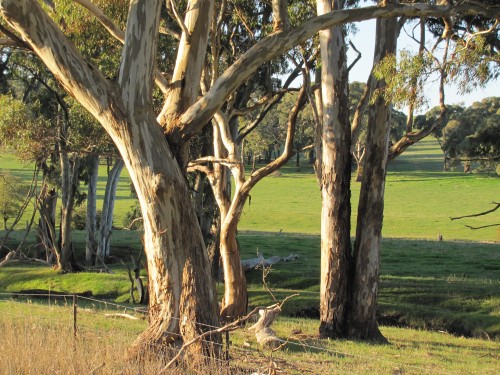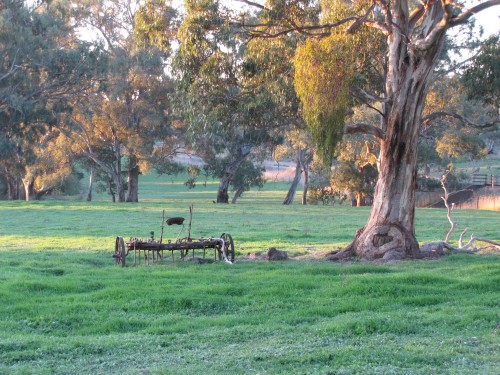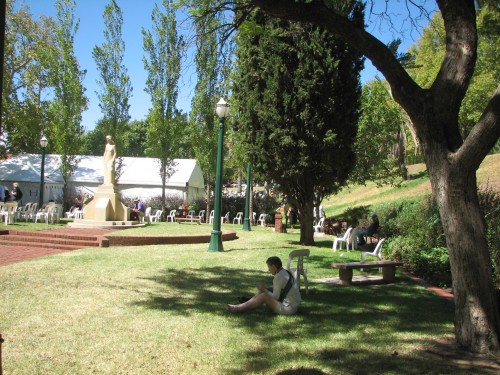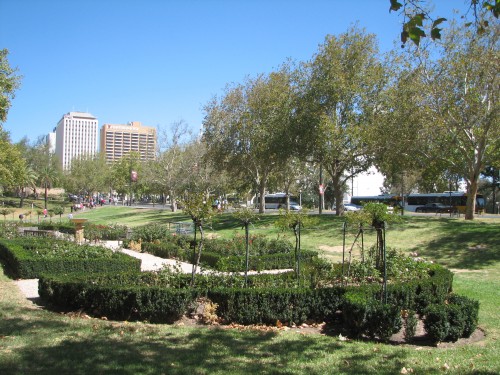Clare Valley writers festival 2013
Clare Valley Writers’ week: bringing readers and writers together.
November 25th – December 1st 2013.
In recent days I have written about several other writers ‘festivals here in South Australia. Late in the year there is another one scheduled to be held in the Clare Valley in the mid-north of South Australia. This was my home town until we moved to Murray Bridge some 30 years ago. My daughter now lives in Clare, just around the corner from where she lived as a young girl.
This is the inaugural writers’ festival in the Clare area. It has much to offer and a great deal of potential. Here is another example of reading, writing, fine food and wine coming together to celebrate not only our finest writers – the line up of speakers is impressive – but also our great food and wine heritage.
I plan to be there. I may even enter several of the writing competitions which are now open.
For further information click here.
For the curious and discerning reader you can read some of my writing on this site: just go to the contents section on the sidebar.
Adelaide Writers’ Week
Over recent weeks our capital city Adelaide has been abuzz with its annual Fringe Festival, followed by the now annual Festival of Arts; it used to be every two years. Somehow we manage to make this month into “Mad March”. In addition to these two major festivals organisers also manage to cram in the Clipsal 500 car race and this weekend we have the Adelaide Cup, a horse race.
One of the features of the Festival of Arts I always look forward to is Writers’ Week. This is always held over about 6 days in the beautiful Women’s Memorial Gardens, part of our lovely parklands. Sitting in the shade of the trees on an early autumn day listening to writers talking about their books and their writing craft is a very pleasant way to spend a few – or many – hours.
Unfortunately life conspired against me this year and I didn’t make it to a single session. [Sigh]
You can read my impressions of the last Adelaide Writers’ Week here.
Vale Max Fatchen, author extraordinaire

Max Fatchen
It was a sad day yesterday as South Australia farewelled one of our beloved writers, Max Fatchen. The popular author died at the age of 92 after a career which started in 1946. He was a renowned journalist, columnist, humorist, novelist and quirky poet.
His children’s books alone places him at the highest level of children’s literature in Australia, but he was far more than that.
His regular poems and columns written for our state daily newspaper The Advertiser will remain in the memories of many for years to come.
Become a professional liar
‘I’m not interested in anything that doesn’t involve lies. If I want the truth, well, I can Google it, can’t I?’
Robert Dessaix at Adelaide Writers Week 2012 March 5th
Fiction writers are, if you think deeply about it, professional liars. Fiction, by definition, is made up out of the imagination of the writer. I know what Dessaix (a prominent Australian writer) is trying to say, albeit somewhat tongue in cheek. The audience’s amused reaction was predictable. He is generally a very entertaining speaker, panellist and a very talented writer.
The interesting thing I find about thinking and talking about fiction is that, although all fiction is imaginary, made up, not true, there is another element at work in sometimes very subtle ways. One could call most fiction a lie, good literature will illuminate truths about the human condition.
And what is truth anyway?
Research and accurate writing
I read an interesting article in a magazine this morning about the importance of research and reflecting this effort in one’s writing. With non-fiction this is a given; without thorough research on the topic, the author’s credibility is at stake. You need to get it right or your readers will dismiss you instantly.
Research in relation to fiction is another matter, went the writer of the article. It was written from the perspective of an editor who has to deal daily with authors who often display sloppy research skills – or none at all. ‘It’s only fiction,’ they whine, ‘so it doesn’t matter if it’s not entirely accurate.’
Wrong.
One small inaccurate historical fact, one misplaced geographical detail, or an innocent cultural gaff can have readers slamming your book down in disgust or throwing it across the room. You need to get it right or your readers will rebel. You may lose a dedicated reader for life, and if you have contact details on your web site, you will get abusive emails.
The simplest of errors that can creep into a story are often innocent and not noticed by most readers. I came across a classic example recently in a novel written by a friend and a writer highly respected in her field. The story was set in the 1870s and the characters sang ‘Happy Birthday’ to the protagonist. Instantly this jarred in my mind. This song is a relatively recent composition, I thought. My research has revealed that it was first used in the early 1900s and was first published in 1912 (if my memory is correct). It became part of the popular culture decades later, much later than in the 1870s. [Note to my readers: please correct me if I’m wrong!] I know the author had done meticulous research for her novel, a fictional retelling of an historical event in Australia. This one slipped innocently under her radar – and that of her editor.
It can take just as much time to research a novel as it does to gather material for a non-fiction book, especially if you are setting your story in an unfamiliar location, time in history or culture. I found that research was crucial when writing my children’s novel set in Nepal. I’d been a visitor – a tourist – for about four weeks. Hardly enough time to absorb all the nuances needed to successfully write the story.
The opposite is also true. If you get it right you’ll have readers wanting more. That’s what we all crave, of course.
Good writing.



